
HVAC stands for heating, ventilation, and air conditioning. It also includes refrigeration, and in some cases, you may see the abbreviation of HVAC/R to further indicate this.
HVAC technicians typically work on units that provide air quality and temperature control in a variety of settings. These include residential homes, commercial buildings, and even hospitals.
Working in HVAC can be an excellent career. You might be curious about what an HVAC technician does. If so, you will benefit from more information. We outlined what does an HVAC technician do, including their responsibilities and duties:
1. HVAC Installation
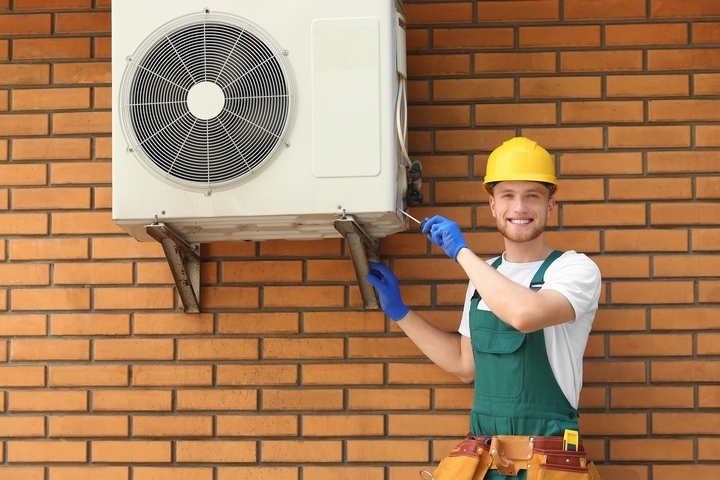
One of the main things an HVAC technician does is to install various units. Before beginning an installation, the technician will have to verify that they have all of the necessary calculations completed for that particular install.
Once the technician has everything in place, they will go ahead and install the unit. From there, they will test the unit’s piping and connections and then go ahead and connect the HVAC unit to the ductwork and distribution system.
If the technician focuses on refrigeration, they will also be responsible for changing any system with a refrigerant.
2. HVAC Maintenance
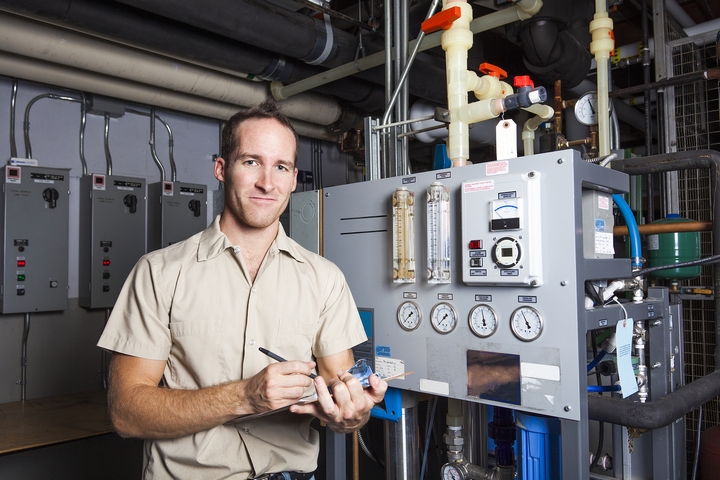
To ensure your heating, ventilation, and cooling systems are performing at optimal capacity, you will want to have maintenance performed regularly. This usually equates to maintenance checks every six months or so.
What can you expect an HVAC technician to do during these checks? They will usually pay particular attention to testing and cleaning the blower fan, checking the thermostat, and the level of coolant in your cooling system.
Having regular maintenance performed by a qualified HVAC technician can save you lots of money down the road. Since they are highly trained, they will be able to identify any potential problems before they become full-blown issues.
3. HVAC Repair
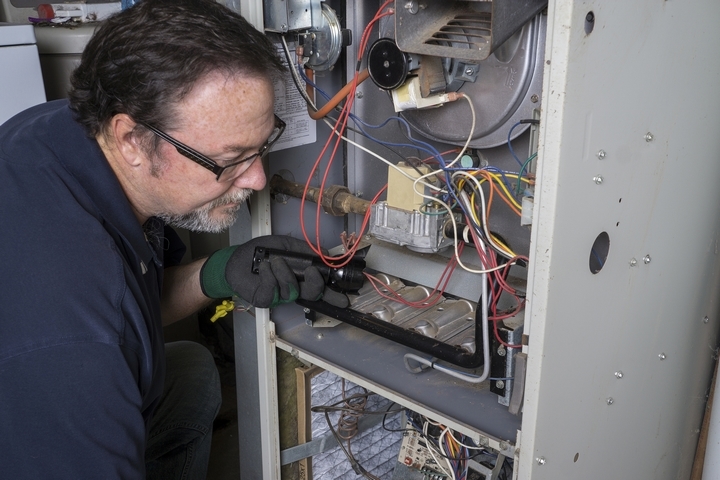
When your furnace or air conditioner does break down, chances are one of the first things you’ll do is call an HVAC technician to have them come by to check it out. If the issues can be repaired, your HVAC technician will provide the furnace repair on-site or come back when they have all of the necessary parts.
If the HVAC technician determine the unit is beyond repair and you need a completely new one, they will be able to come back with the new unit and install it.
4. HVAC Customer Service
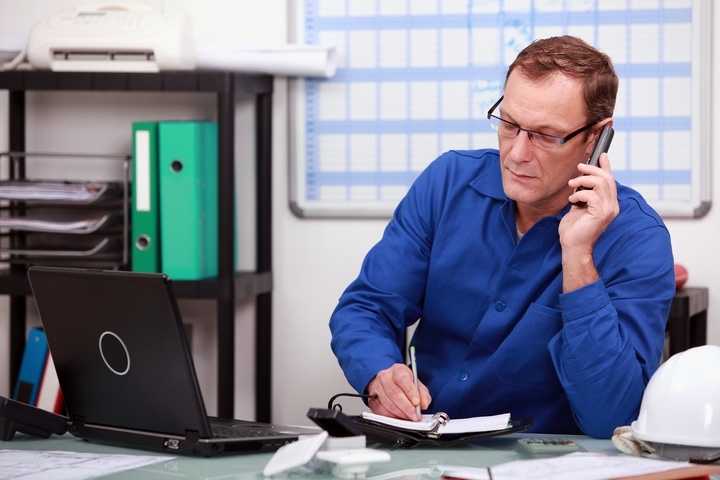
Beyond installation, maintenance, and repair, HVAC technicians are also trained to provide excellent customer service. Since they deal with customers on an almost daily basis, these skills help them to effectively communicate with their customers.
If you’re a homeowner and you have questions for your HVAC technician, or you simply want to become more educated in what some of these tasks entail, they will be happy to share their knowledge with you.
HVAC technicians can also provide advice on your units if you need it. Say, for example, that you have an older model furnace and you’re looking to have it repaired. Your HVAC technician can provide you with any advice you may need before purchasing a new unit.
5. Perform Ductwork
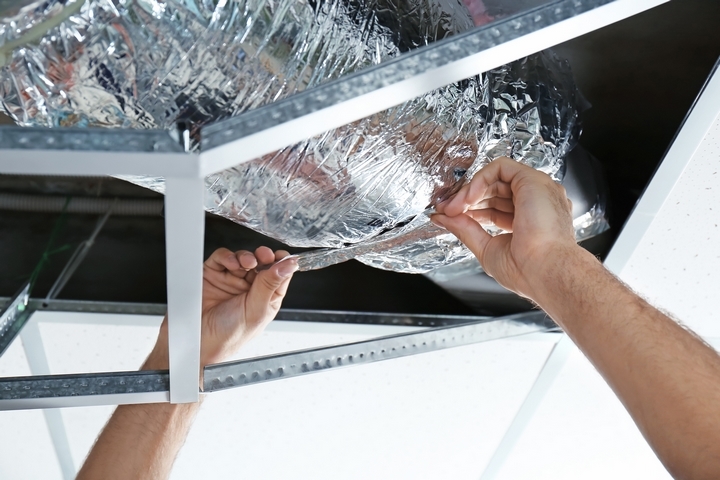
Sometimes, an HVAC technician may also be required to install ductwork. To do this, they will need to cut various sheets of metal to be able to form them into ducts, attach the ducts to the HVAC unit, as well as mount the new ductwork to the rest of the assembly. When installing ductwork, HVAC technicians will also install registers for where the ductwork connects to individual spaces.
In other cases, an HVAC technician will work with other tradespeople to install ductwork. This is particularly true if the technicians are under a union contract. If this is the case, the HVAC technician will work with sheet metal workers and duct installers to perform any ductwork.
6. Provide Energy-Efficiency Upgrades
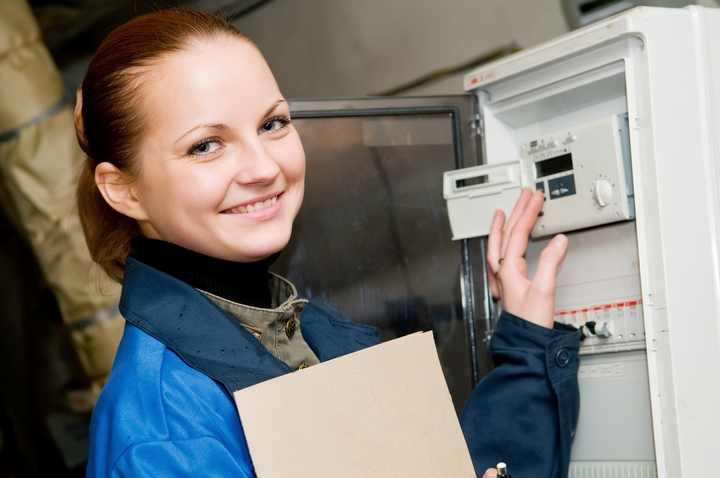
With the rise of energy-efficient products, HVAC technicians are also responsible for determining the energy consumption of current HVAC/R systems. From there, they may go ahead and upgrade systems, install things like smart thermometers, and monitor energy consumption.
In addition to these six responsibilities and duties of an HVAC technician, they also need to be good communicators, organized, practical, good with technology and have excellent problem-solving skills.
Keep in mind that depending on where an HVAC technician works, they may specialize in just heating, ventilation, air conditioning, or refrigeration systems. They may further specialize in the installation, maintenance, or repair.
Whatever job an HVAC technician is doing, they will need to be aware of and follow all government regulations and local HVAC codes. This applies to the handling, recovery, disposal, and conservation of refrigerants and any other similar substances.
If you’re looking into a career as an HVAC technician, this allows you to focus on what interests you the most, allowing you to get really good at one specific area.









